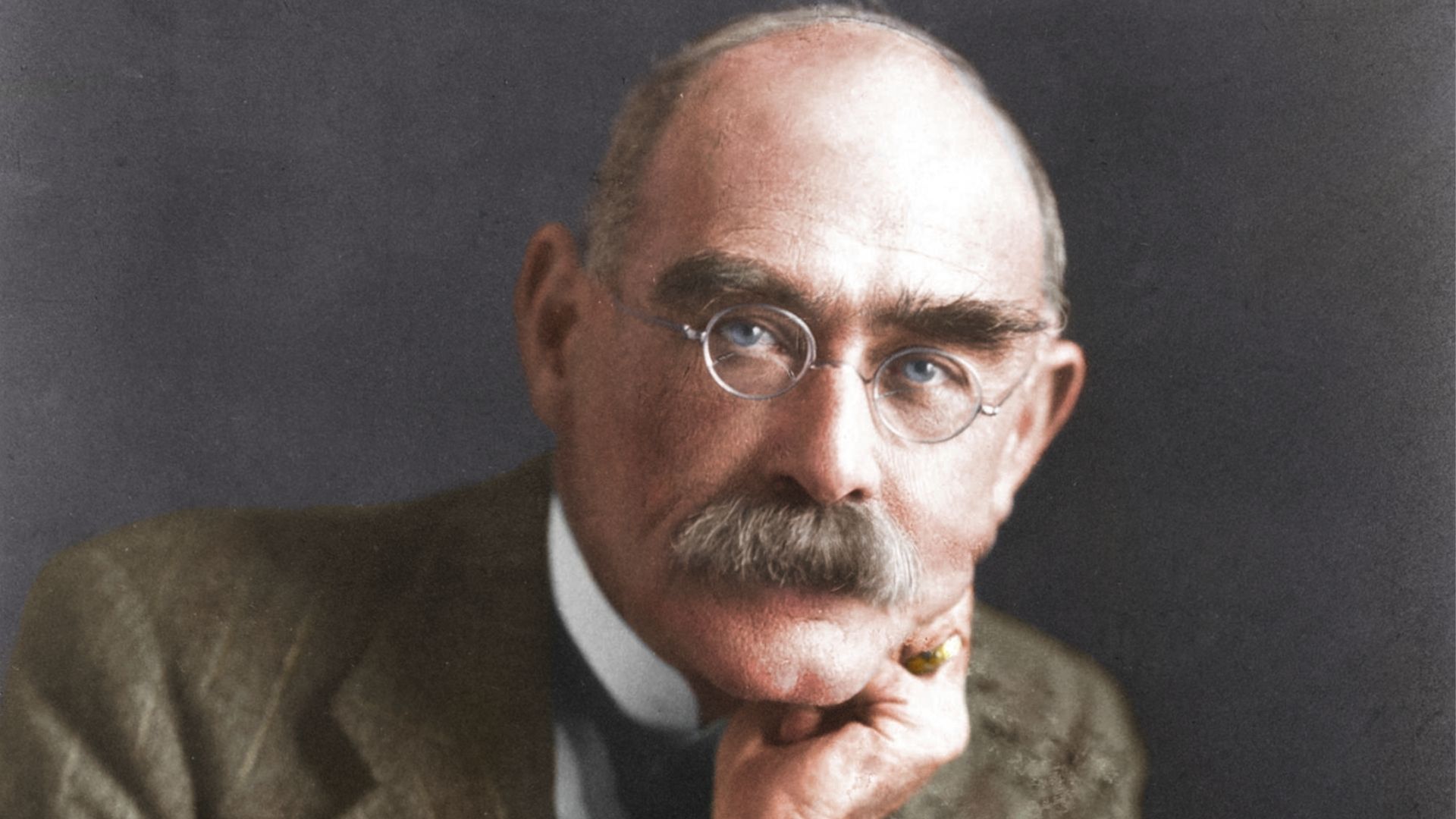The Prodigal Son Poem by Rudyard Kipling
The Prodigal Son
Here come I to my own again,
Fed, forgiven and known again,
Claimed by bone of my bone again
And cheered by flesh of my flesh.
The fatted calf is dressed for me,
But the husks have greater rest for me,
I think my pigs will be best for me,
So I'm off to the Yards afresh.
I never was very refined, you see,
(And it weighs on my brother's mind, you see)
But there's no reproach among swine, d'you see,
For being a bit of a swine.
So I'm off with wallet and staff to eat
The bread that is three parts chaff to wheat,
But glory be! - there's a laugh to it,
Which isn't the case when we dine.
My father glooms and advises me,
My brother sulks and despises me,
And Mother catechises me
Till I want to go out and swear.
And, in spite of the butler's gravity,
I know that the servants have it I
Am a monster of moral depravity,
And I'm damned if I think it's fair!
I wasted my substance, I know I did,
On riotous living, so I did,
But there's nothing on record to show I did
Worse than my betters have done.
They talk of the money I spent out there -
They hint at the pace that I went out there -
But they all forget I was sent out there
Alone as a rich man's son.
So I was a mark for plunder at once,
And lost my cash (can you wonder?) at once,
But I didn't give up and knock under at once,
I worked in the Yards, for a spell,
Where I spent my nights and my days with hogs.
And shared their milk and maize with hogs,
Till, I guess, I have learned what pays with hogs
And - I have that knowledge to sell!
So back I go to my job again,
Not so easy to rob again,
Or quite so ready to sob again
On any neck that's around.
I'm leaving, Pater. Good-bye to you!
God bless you, Mater! I'll write to you!
I wouldn't be impolite to you,
But, Brother, you are a hound!
The poem is developed from the famous story prodigal son, but the interpretation of Kipling does not deliver an orthodox Christian view. I would say Kipling is putting the story into another context, and it is innovative to narrate from the son’s point of view. It is a pleasure reading Kipling's poems, his language is plains and concise. I always love Kipling’s “If”, and now I found “The Prodigal Son” another treasure. From his narration one can grasp a vivid and interesting plot, and I especially like the plainness and directness of Kipling’s language. There’re many examples of plain words and even slang: “I know that the servants have it I Am a monster of moral depravity, And I'm damned if I think it's fair! ” Moreover, there are some humorous line embedded: “My father glooms and advises me, My brother sulks and despises me, And Mother catechises me Till I want to go out and swear.” I really laughed when I read “till I want to go out and swear”. And more, “I wouldn't be impolite to you, But, Brother, you are a hound! ” These lines realistically reflect the psychology of a prodigal son. The disobedience cannot be tamed at once. The rhyme in the poem is apparent and uniform, which makes it very memorable and easy to understand. However, there is a point I can’t understand. According to the original story, the younger son is not sent out but runs away with his share of heritage. Why did Kipling change the story? I think the twist of the story is intentional, but his intention remains so far unknown.
This poem has not been translated into any other language yet.
I would like to translate this poem
Panzy J: [quote]However, there is a point I can’t understand. According to the original story, the younger son is not sent out but runs away with his share of heritage. Why did Kipling change the story? I think the twist of the story is intentional, but his intention remains so far unknown. [/quote] Sometimes when everything is provided to you, you never really feel independent. If your mom or dad or servant made your every meal and picked out your clothes, etc... you would never feel independent. There is a drive among people to be able to make their own choices and even make their own mistakes- and when you're sheltered, you never have that. You can't have that. This is why (in politics especially) people always argue about the balance between freedom and security. If people force you to wear your seat belt, you are more secure, but you are less free - you don't have the freedom to decide whether you want to do it yourself. Too much security is stifling - an you can push people (i.e. your children) away by taking away their freedom. No matter how secure their lives are. So maybe Kipling channeled that when he changed the story. Just my opinion. What do you think?